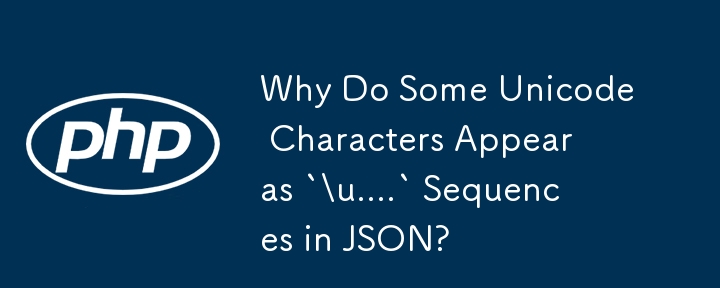Home >Backend Development >PHP Tutorial >Why Do Some Unicode Characters Appear as `\u....` Sequences in JSON?
Why Do Some Unicode Characters Appear as `\u....` Sequences in JSON?
- Patricia ArquetteOriginal
- 2024-12-19 19:30:111058browse

Why "Special" Unicode Characters Appear Encoded with u.... Sequences in JSON
When encoding "special" Unicode characters with PHP's json_encode function, they often appear as unfamiliar string literals prefixed with "u". This behavior is inherent to JSON's character encoding mechanism and doesn't indicate any encoding errors.
JSON allows characters to be represented as u.... escape sequences, where .... denotes the character's Unicode code point. This is equivalent to how string literals in ECMAScript (JavaScript) are formed.
For instance, the character "馬" can be represented as either "馬" or "u99ac" in JSON. Both literals represent the same character and are equally valid. When parsed by a compliant JSON parser, they will both yield the same string.
By default, PHP's json_encode favors u.... escape sequences for non-ASCII characters. However, you can override this preference by specifying the JSON_UNESCAPED_UNICODE flag in PHP 5.4 or later. This will result in JSON output with literal characters instead of escape sequences:
json_encode(['foo' => '馬'], JSON_UNESCAPED_UNICODE); // Output: {"foo":"馬"}
It's important to note that specifying JSON_UNESCAPED_UNICODE is a personal preference and not a requirement for transporting Unicode characters in JSON. Both escape sequences and literal characters are equally valid in JSON representation.
The above is the detailed content of Why Do Some Unicode Characters Appear as `\u....` Sequences in JSON?. For more information, please follow other related articles on the PHP Chinese website!

